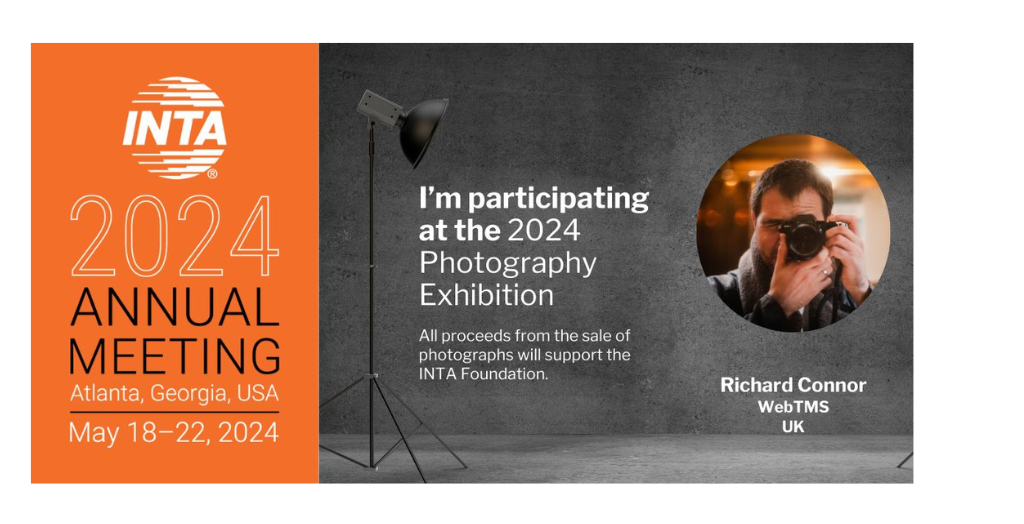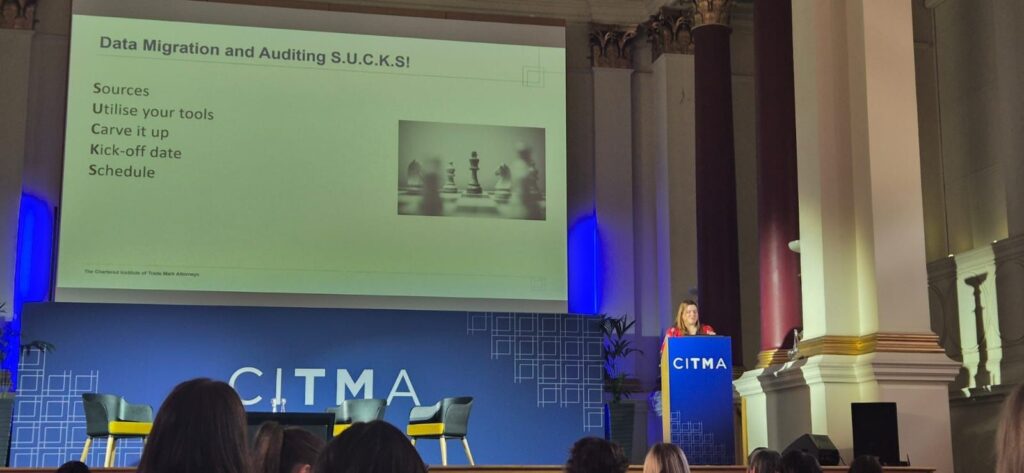A Year in Trade Marks – Looking Back on 2024
Now we’ve passed our quarter-century – reaching our 26th anniversary this year – it seems that time flies faster than ever! This year has been full of fascinating trade mark stories that have seen some of the world’s biggest brands battling to protect their IP rights, sporting stars seeking to build their profile off the back of a spectacular Paris Olympics, and the long-awaited SKY vs SKYKICK UK Supreme Court judgement. In the year that the UK marked the 30th anniversary of the Trade Mark Act, we’ve picked out some of the stories that piqued our interest – as we approach the season of indulgence, it may be more than coincidence that many of them are food-related!
At WebTMS, we’ve continued to prioritise ensuring our users get the best possible IP Management Software experience, and we’ve enjoyed meeting hundreds of trade mark attorneys, paralegals, and specialists over the course of a very busy year.
January – March: Wins and losses for retailers; Ukraine Border Service denied trademark
The tension between Marks and Spencer and ALDI continued at the start of the year, as the Court of Appeal upheld an earlier judgement that ALDI’s light-up gin bottle infringes M&S’ registered design. This prompted us to take a look at registered designs – the “unsung hero of IP protection – in our blog.
There was better news for ALDI as it successfully defended a case brought by Thatchers regarding the packaging of its “Taurus” cloudy lemon cider. Her Honour Judge Melissa Clarke went as far as conducting her own blind taste test as part of her deliberations, before ruling that the signs used in ALDI’s packaging were similar, but only to a low degree, and that there was a lack of evidence that customers were confused between the two products. We explored more cases between rival grocery brands in our Store Wars blog.
As we’ve noted before, intellectual property filings often reflect geopolitical, cultural or social situations, and this was certainly the case with the Ukrainian Border Service’s attempt to register its defiant communication with a Russian warship (“Russian warship, go f*** yourself), which went viral in the early stages of the conflict. Unfortunately for the service, the EU General Court ruled that the phrase was heavily used in a non-commercial context and was therefore incapable of acting as a commercial source identifier.
April – June: International talks, INTA-actions and IP loans
In April, WebTMS Business Development Manager Samantha and Sales and Training Specialist Diana Barbut headed to beautiful Oslo to speak at the Norwegian Association of IP Administrators conference. This was a super event and highly recommended for trade mark paralegals and administrators. Joining a community of fellow administrators is a great advantage for those growing their careers in the industry – we looked at the advantages here.
When May comes around we know it’s time for the annual pilgrimage to the International Trademark Association Annual Meeting. Atlanta was a marvellous location, and there are always so many great activities and opportunities associated with the event. We were delighted that our Project Manager Richard Connor’s skill in photography was recognised in the INTA Photography Exhibition. Richard’s late-night street photo depicting a Hong Kong businessman heading home from an evening out certainly attracted appreciation from visitors.

Another development that was appreciated in IP circles was the introduction of the UK’s first IP-backed bank loan – £700,000 granted by NatWest to software business Sci-Net. Developed in partnership with specialist IP valuers Inngot, NatWest aims to help unlock the funding gap for high-growth firms with its loan scheme, which allows companies to borrow against up to 50% of the value of their firm’s intellectual property, including software, patents, copyright, trademarks and registered designs.
June brought us the surprising news that the McDonald’s Big Mac mark had been cancelled in Europe on the basis of non-use. Demonstrating that even massive brands sometimes make IP mistakes, the ECJ ruled that there was no evidence of genuine use of the trade mark for poultry products in the previous five years, meaning it was vulnerable to a cancellation bid from Irish fast food chain Supermac.
July – September: Olympic trade mark targets and wax scents-ations
Summer brought us the four-yearly sporting spectacular that is the Olympic Games. Weeks of outstanding sport were accompanied by social media trends that catapulted some athletes into the public consciousness. A surprising hit was the target shooting discipline, where Turkiye’s Yusuf Dikic captured imaginations by forgoing technical shooting glasses and free arm support. His pared-down stance was soon being imitated across different sporting events and it wasn’t long before he applied to register his “trademark” pose with the Turkish PTO to prevent others from profiting.

In September we all became “very demure, very mindful™” as this Gen Alpha trend took off through social channels. Its originator, TikTok content creator Jools Lebron, moved to register the phrase as a trade mark in a bid to ward off trade mark squatters. Media coverage was widespread, with some very informed articles quoting genuine trade mark experts such as Prof. Alexandra J Roberts, but others going down the well-trodden route of confusing trade marks and copyrights. This prompted us to exorcise our reporting demons by exploring examples of media misreporting.
In September we also supported the second annual CITMA paralegal conference. This event has gone from strength to strength in the past year and was an excellent forum in which to meet, share experiences – such as our tips for conducting migration and auditing projects – and learn more about the challenges and needs of the people who use our software every day.

October – December: Can you register a country name as a trade mark… and can you travel if your name is a registered trade mark?
The end of the year saw Sweden’s tourist board embark on a trade mark-related publicity campaign in which it announced that it has applied to register “SWEDEN” as a trade mark with the EU IPO because according to Visit Sweden CEO Susanne Andersson: “We’re flattered that others want to be called Sweden, but we’d prefer if there were only one.” While Susanne is likely well aware that registering the mark won’t necessarily stop other places and organisations using the name – see Iceland vs ICELAND FOODS – they have indeed made an application, in Nice class 39 for travel information.
Two British children who have struggled to travel to Sweden – or anywhere else – are a boy and girl whose parents’ enthusiasm for popular fantasy got them into a pickle at the UK Passport Office. Young Loki Skywalker and Khaleesi were wrongly refused passports on the grounds that their given names are also registered trade marks.
The final story that has tickled our trade mark fancy this year is what is becoming known as the “sad beige lawsuit” being fought between two online influencers who each claim that the other is stealing with “aesthetic”. The problem is, their minimalist, beige vibe is almost the definition of lacking distinctiveness leading experts to pose the question “can your aesthetic be too basic to obtain IP protection?” For a long read on this, check out this article from The Verge, and for a more closely focused IP take, read Prof Roberts’ guest blog on Eric Goldman’s Technology and Marketing Law Blog.
At WebTMS, we are far from sad and beige. Another highlight of the autumn was our London Workshop and Client Reception where we shared key technology updates and enjoyed a great visit to Flight Club in Bloomsbury.
Thank you to all our customers, colleagues, partners and friends for your support in 2024! Wishing everyone a peaceful festive season and every success in 2025!
